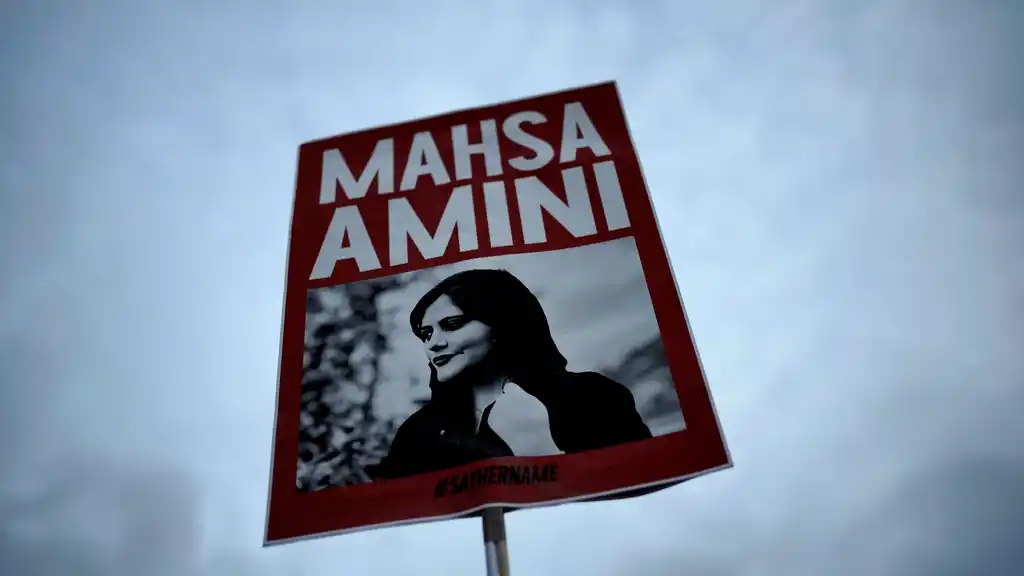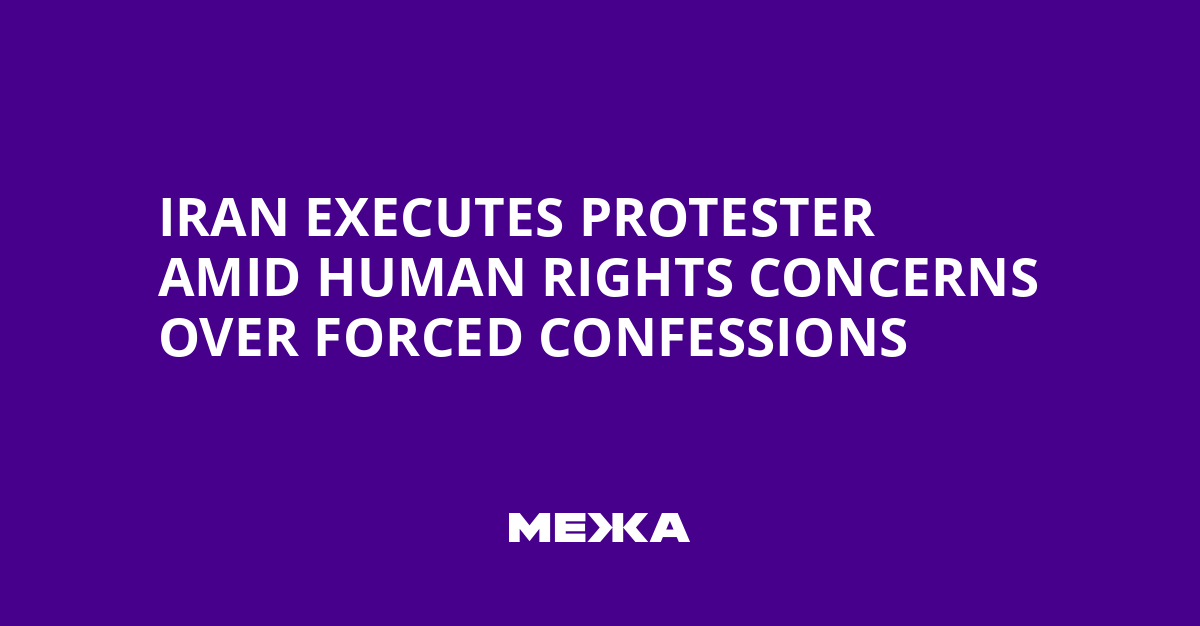
A woman holds a placard bearing the image of Iranian Mahsa Amini during a protest over her death in Berlin, Germany, on Wednesday, September 28, 2022. AP/Markus Schreiber
In Iran on Saturday, September 6, 2025, a man was executed who was accused of involvement in the killing of a security service officer during the protests that erupted after the death of Mahsa Amini in 2022. Human rights advocates emphasize that authorities often rely on confessions obtained under pressure or torture as the basis for verdicts in cases involving protesters.
An official statement from the Mizan Judiciary says that Mehran Baghramyan allegedly took part in an attack on a security forces vehicle in the Semirum district of Isfahan Province, which led to the death of officer Mohsen Rezaei in December 2022. The statement also notes that other participants were injured, and the confiscated property was seized.
Human rights advocates add that Baghramyan’s brother, Fazel, was also sentenced to death on similar charges. Their brother Morad Baghramyan was killed by security forces during the 2022 protests. Following this execution, the total number of death sentences for participation in the protests, according to Reuters, rose to at least ten.
Amnesty International warns that confessions obtained after beatings, prolonged solitary confinement, and threats to detainees and their families are regularly used as evidence in courts, calling into question the right to a fair trial.
Protests in Iran erupted in mid-September 2022 after 22-year-old Mahsa Amini died following arrest and beating by morality police officers for allegedly violating hijab rules. Her death became the catalyst for large-scale demonstrations under the slogan “Women, Life, Freedom.”
In the international context, observers note that such events continue to raise concerns about human rights in Iran, particularly regarding the use of the death penalty for politically motivated charges and the use of torture or coerced confessions during investigations.
Context and the International Community’s Response
Human rights advocates and analysts emphasize the need for independent investigations into cases related to protests for women’s rights, as well as adherence to fair trial standards. They call for reducing the use of the death penalty in the context of protests and ensuring transparent legal procedures for detainees to prevent abuses in justice.
This development underscores the longstanding tension between the Iranian authorities and the movement for equal rights for women, and also prompts international appeals to the country to uphold international human rights standards and secure basic freedoms.
